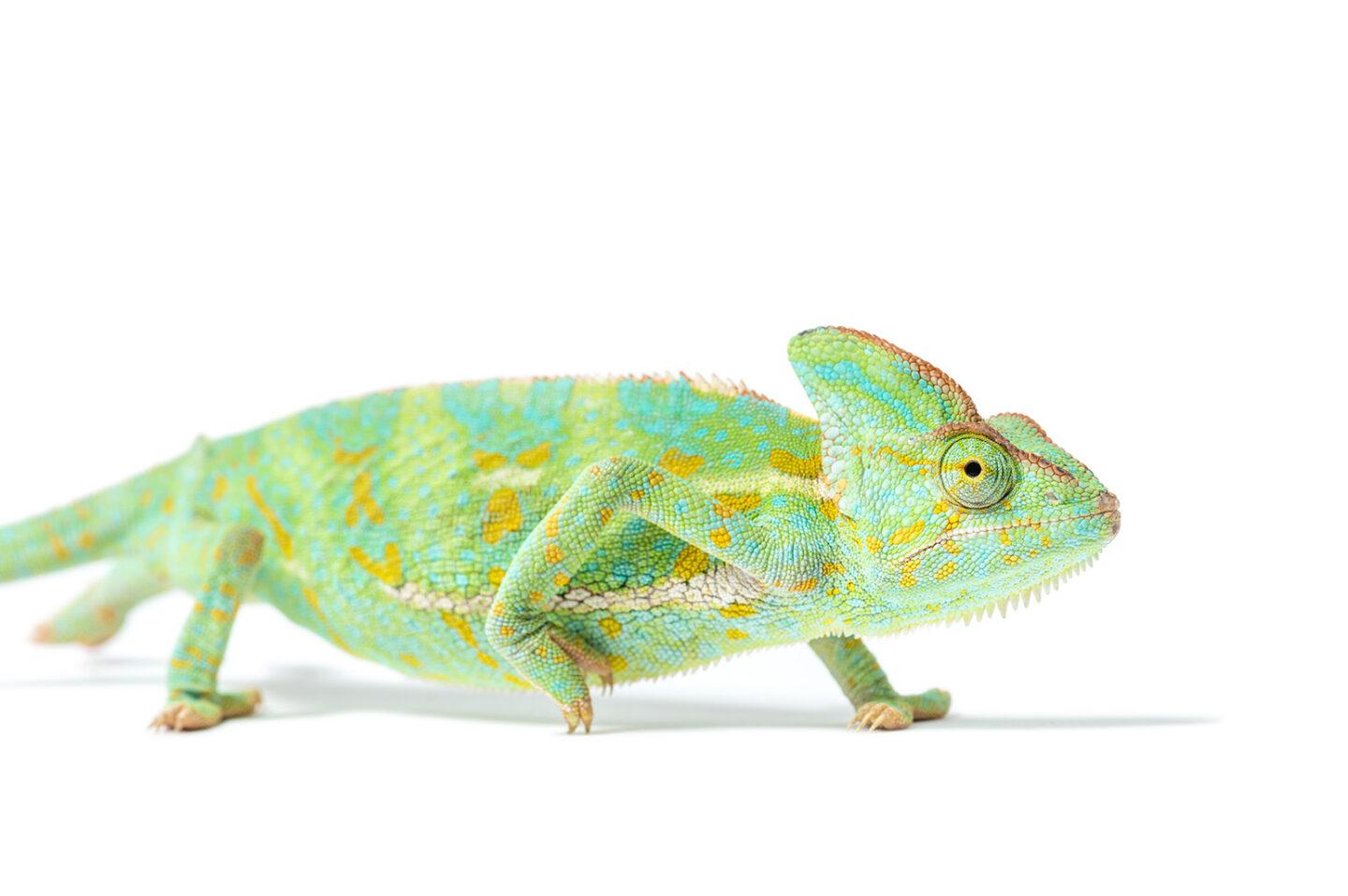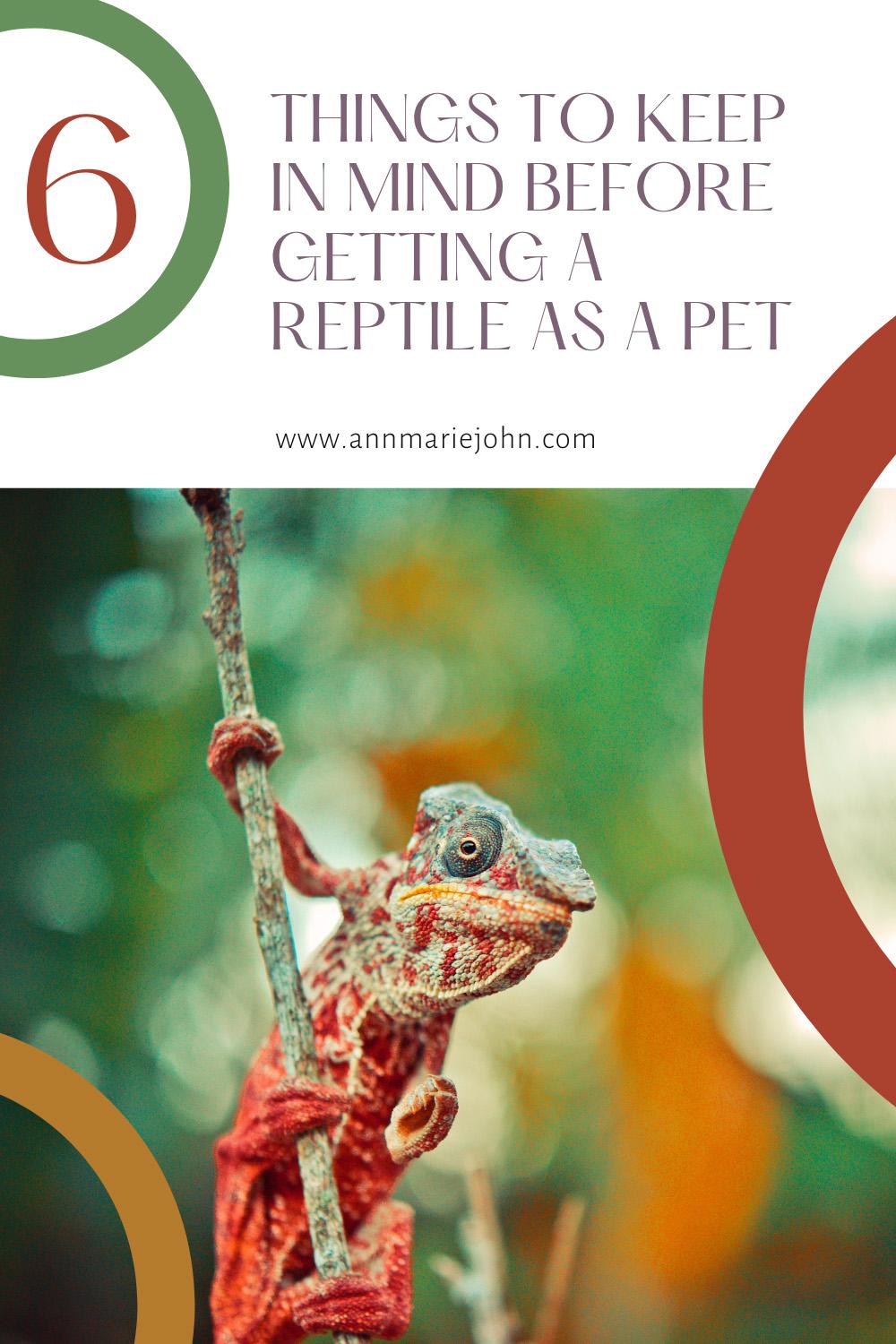If you’re thinking about getting a reptile as a pet, there are several important things to consider before taking the plunge.

Reptiles can be fun and interesting pets, but they need special care and attention that not everyone can provide. Before bringing home your new scaly friend, it’s essential to do some research on the type of reptile you’re interested in and understand what is required to keep them healthy and happy. Here are six key points to keep in mind before getting a reptile as a pet.

1. Veterinary Care
Regular veterinary visits are essential for the health of your reptile pet. Reptiles require specialized care that goes beyond regular check-ups and vaccinations, so it’s important to find a qualified veterinarian who has experience with reptiles to ensure your pet receives the attention they need. Also, according to reptilestime.com, reptiles tend to hide their illnesses, so regular visits are necessary for monitoring their health. Additionally, more exotic species may require additional treatments that are not covered by conventional medical insurance policies, so be sure to factor this into the cost when considering getting a reptile as a pet.
2. Housing Requirements
Reptiles require specific housing depending on the species. This is usually more challenging than keeping a mammal or bird as a pet. Different reptiles have different temperature, humidity and lighting needs that must be met in order to keep them healthy and happy. Therefore, before getting a reptile, research the specific species to ensure you can provide the necessary environment for it. Consider investing in high-quality terrariums, heating lamps, thermostats, and other specialized equipment to create an ideal habitat for your reptile pet. Additionally, make sure you clean and disinfect their tanks regularly to prevent germs and bacteria from forming.
3. Diet
The proper diet for a reptile is essential to its health and longevity. Most reptile species require a very specific diet, including specific types of food and nutritional supplements. Be sure you know exactly what your chosen reptile needs before bringing it home. Research the type of food necessary for your pet’s species and make sure you can provide that in their enclosure. This could be fresh vegetables, insects, or even frozen rodents. Many reptiles also require UVB lighting to ensure they get adequate Vitamin D3 which helps them metabolize calcium properly and keep them healthy. While all of this might sound intimidating, it is important to be aware of the dietary needs of your reptile before bringing them home.
4. Handling the Reptile
Before you bring your reptile home, make sure that you have a plan for how to handle them. Some reptiles are more delicate than others and require gentle handling. Additionally, not all reptiles like to be handled; so it is important to do some research into the specific species before bringing it home. Make sure that if you do need to handle your reptile, you have proper tools such as gloves or tongs available so that you don’t hurt the animal. Also, be aware of any potential risks associated with handling the reptile, such as their ability to bite or carry diseases.
5. Challenges Of Owning A Reptile
While owning a reptile can be an enjoyable and rewarding experience, it is important to understand that there are some challenges. Reptiles require special care and handling, as well as regular veterinary visits for health monitoring. In addition, reptiles may be susceptible to certain diseases or parasites, so it is important to research the specific needs of your chosen species. It is also important to carefully consider the size of the enclosure required for your pet, as well as any other living space requirements.
6. Time Commitment
Reptiles require daily care. This means that you need to make sure that you can commit to providing your reptile with the food, water, and habitat maintenance it needs to thrive. Some reptiles, such as turtles and tortoises, may need more frequent feeding than others; for instance, some experts recommend feeding them every other day rather than once a day. Additionally, you should be aware of any special care requirements that your specific species has–for instance, snakes may benefit from regular shed cycles or humidity baths.
In Conclusion
Getting a reptile as a pet is an exciting and rewarding experience, but it also comes with many responsibilities. Make sure you carefully consider all of the above factors before getting a reptile to ensure that both you and your pet have a positive experience. Researching the specific care needs of your chosen species is key to success when it comes to owning a reptile pet!
